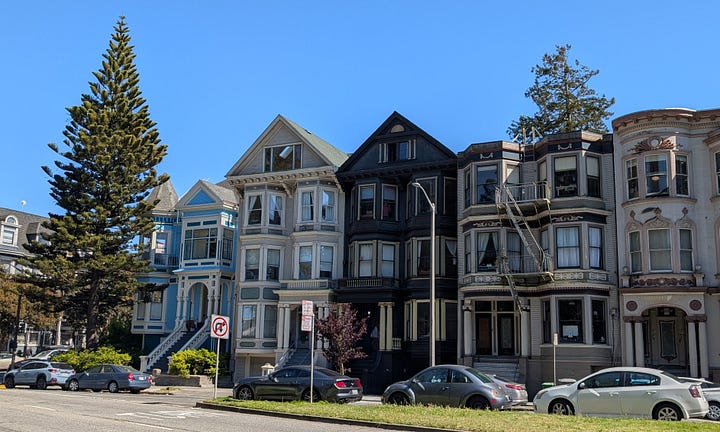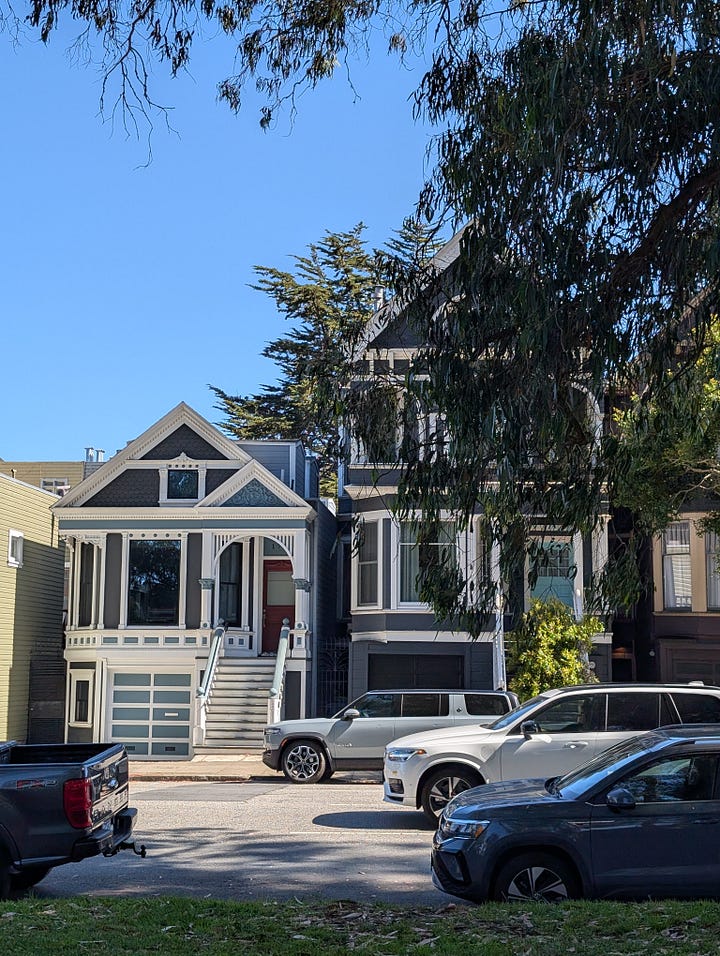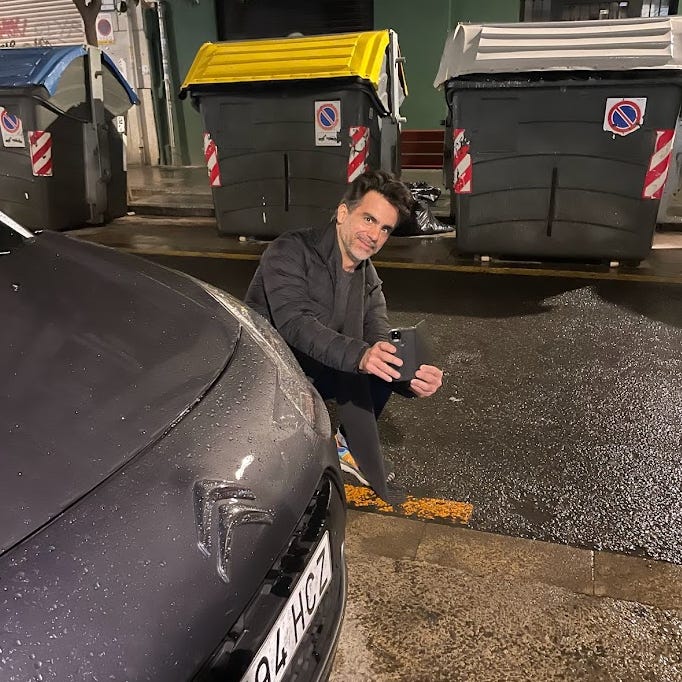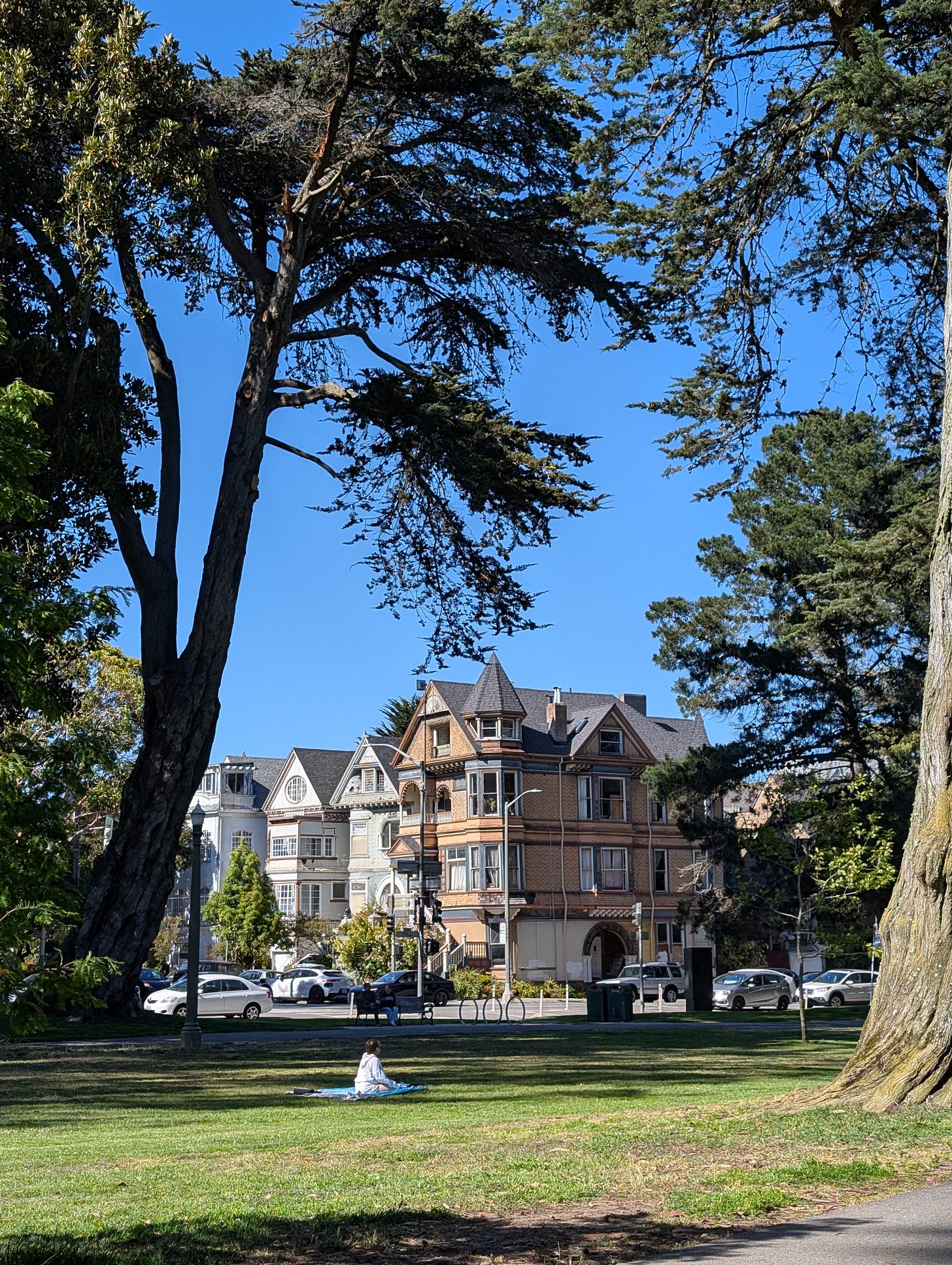Never Retire: I Knew the City Life I Wanted—Spain Has It
Valencia didn’t surprise me—it delivered. I knew exactly what I was looking for. And I knew I wouldn't find it in the U.S.
The last couple of Never Retire newsletter stories focused on the stark differences between urban life and cost of living in San Francisco versus Valencia, Spain.
Today, I focus less on comparisons and more on what it feels like to be back in the United States after living in Spain for four months.
Because a big part of the Never Retire newsletter is describing how I feel as the process of moving to another country unfolds.
Everything is happening just as I had hoped and expected, probably because we had realistic expectations going into this process of what we should reasonably hope and expect.
We wanted to live a very particular kind of daily city life. One that just doesn’t exist in the U.S.—not in a sustained, accessible, widely available way.
That might sound like opinion dressed up as fact—but I’ve lived it. And I haven’t just seen the difference—I’ve felt it.
We weren’t chasing fantasy. We were moving toward a model of urban life that, as far as I can tell, only exists in places like Spain.
That’s not a dig—it’s a distinction.
The only question left was how would we respond—less practically, but more psychologically to the move.
Here’s how I’ve been thinking about it—
Going in with a clear sense of what you were leaving and why you wanted to leave it. Without that, you decrease your chances of success. Just saying you need or want a change isn’t enough. Why do you need or want a change? Specifically, what are the real tangible and cultural differences between the place you’re leaving and your new destination that will sustain a full and content daily existence?
As you know, I went on all day about that. I’m sure a handful of subscribers thought I was setting myself up for a rude awakening. That I would discover that the grass isn’t always greener. But sometimes it is. That said, greener grass alone doesn’t make a better life. It’s about knowing exactly how you will function—being able to visualize yourself not on vacation, but living the day-to-day—in that objectively better place.
It took about five minutes back on American soil to realize that we were right about what we know is objectively better in Spain. There’s a feeling I can’t quite explain—though I’ll try—that makes the U.S. feel a little off, almost foreign, after only four months living in Spain. Then, there are the more concrete examples of the differences.
It’s symbolic, I know, but worth mentioning.
As we walked out of the airport terminal, my wife and I approached the turnstile for BART (the Bay Area Rapid Transit system). We had our Clipper Cards (the payment method) on our phones. However, at the turnstile, we could not immediately figure out where to tap our phones.
We’re not idiots. It’s not intuitive.
If you have a physical card, you tap it right in front of you, to the right, just above waist level. Logically, we thought that this is where you’d tap your phone. Wrong—turns out that you tap your phone on the base of the turnstile that is adjacent to the outside of your right knee. Interesting, if not odd placement.
Anyhow—
As we stood there for a few seconds trying to figure out why our taps weren’t working, an older “gentleman” walked to my wife’s turnstile, passed her, tapped his phone in the right place and rudely exclaimed—this is how it’s done—as he blew past us to his train.
It was a small thing. But public space is a series of small things.
In Valencia, those moments feel like positive interactions. Here, they feel like combat.
By and large, you just don’t see people act like in Spain. In Spain, anyone willing to help would have stopped and politely showed you how it’s done. I have been there long enough to know that the public displays of being an asshole are practically non-existent.
So, while the customs agent at the Global Entry kiosk said welcome back as he cleared me, we didn’t feel so welcome just a few minutes later.
Whatever.
I don't need people to be nice to me, though it's certainly an added bonus of city life when it happens.
Vibrant cities don’t happen by accident. They need two things— real diversity and critical mass.
People from all walks of life, doing all kinds of things—together, in one shared space. That’s what creates energy. That’s what makes a city feel alive and inspiring.
In Valencia, no matter where you go, you see all types of people—from infants and toddlers with their parents to adolescents to young adults to middle-aged people like me to the elderly—sharing space and actively participating in the city’s diversity of uses.
Diversity in people and uses creates the critical mass that powers good urban theater—alive, vibrant, full of rhythm and soul. The stuff you don’t get in cities that feel robotic, where people go through the motions and call it living.
In Valencia, I’m not just watching that urban theater—I’m part of it.
Every day, there’s a hum. A buzz. A constant low-volume chatter that floats up from the street and into our fifth-floor apartment.
You can hear it, see it, feel it.
It’s the sound of people living life outside, together.
On the sidewalk. In the plaza. At the market. In the bar next door that starts filling up before noon.
That’s what makes a neighborhood feel real. Alive. As if there’s a reason to be there and not want to leave.
Back in San Francisco, that buzz doesn’t exist. At least not where we’ve been.
There’s no continuity. No rhythm. Just scattered pockets of activity, separated by long stretches of dead air. People moving through space—not enjoying and appreciating their time in it.
When the basics of life—connection, routine, public ease—aren’t built into your city, you start to live differently. Maybe without realizing it, you retreat.
Spain gives me the opposite of that. It gives me flow. It gives me access. It gives me the freedom to move through a city that inspires me.
That’s not just a better place to live. That’s the foundation for aging well.
And it’s why I already know: I didn’t just move to another country. I moved into the life I want to live—now, and for the duration.
Never Retire means building a life you don’t need a break from. And it didn’t take long—I’ve already found mine in Spain.







